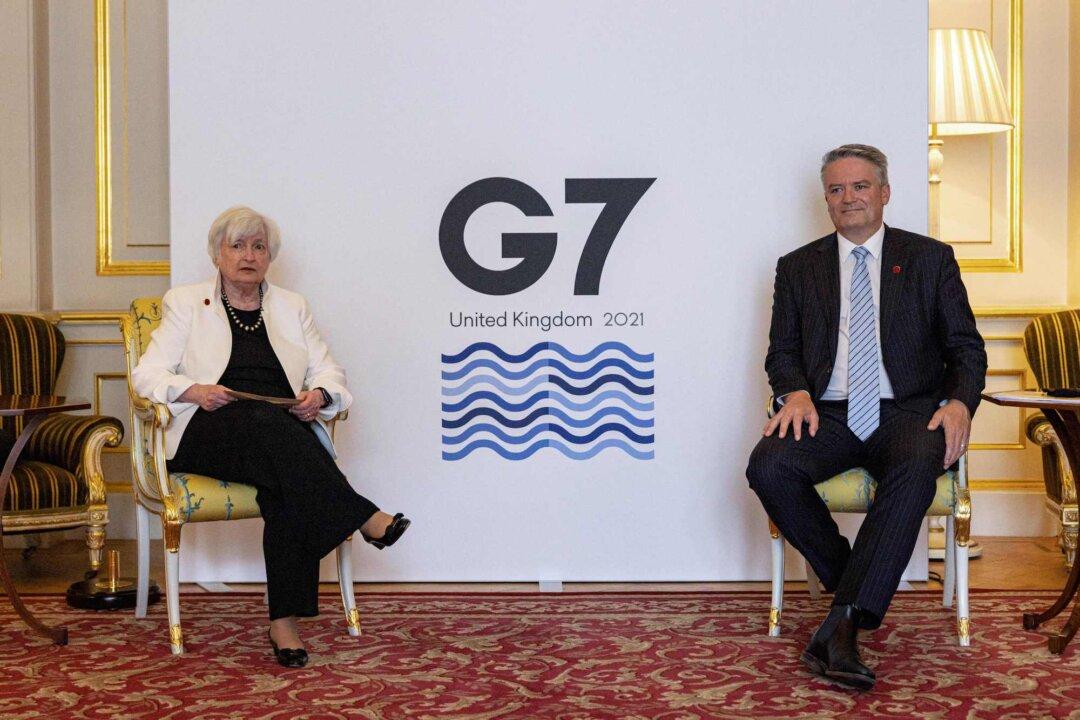A top official at the Organization for Economic Cooperation and Development (OECD), which is hosting talks on a global corporate tax being pushed by the Biden administration, said a 15 percent minimum rate would be a “very significant step forward” that still leaves countries with enough scope to compete to attract multinationals to their jurisdictions.
OECD Secretary-General Mathias Cormann made the remarks in an interview with Bloomberg on June 7, which followed a landmark agreement on the tax on June 5 among senior officials from the Group of Seven (G-7) countries, which includes the United States. The G-7 countries agreed to a minimum global corporate tax rate of at least 15 percent, which would apply to overseas profits.





